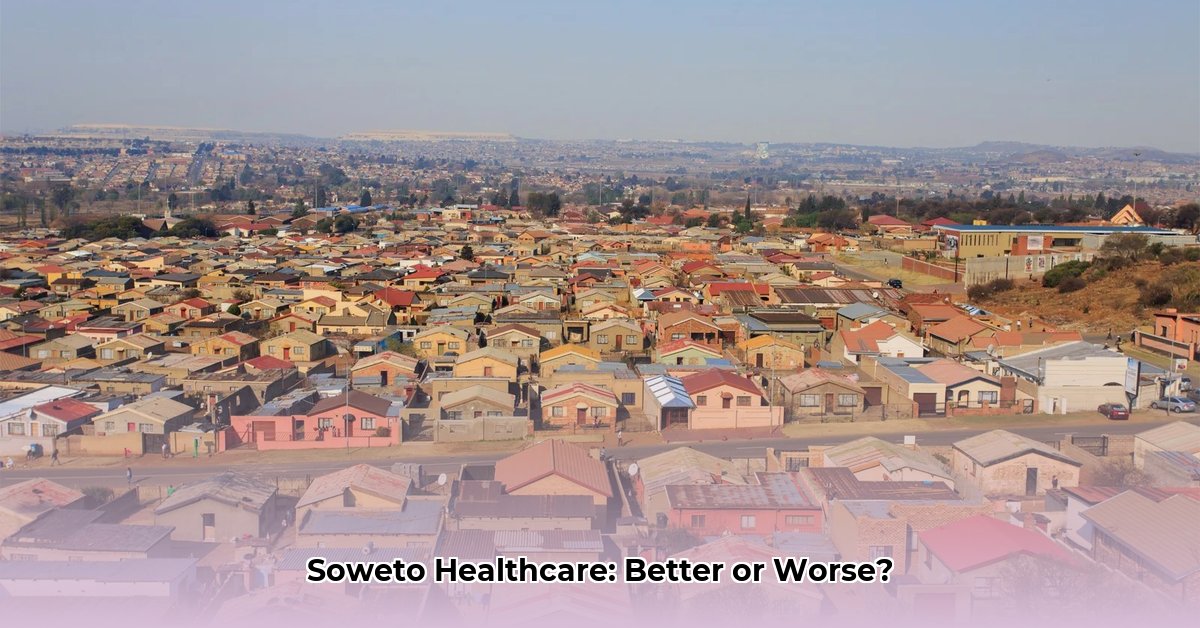
A Landscape Analysis of Healthcare Provision in Soweto
The Soweto Healthcare Hub, a collection of private healthcare providers situated near Maponya Mall, aims to improve healthcare access within Soweto. This analysis assesses the Hub's current performance, highlighting both its strengths and weaknesses to inform strategies for enhancing equitable and accessible healthcare in the community. We will explore the Hub’s functionality, identify challenges, and propose actionable steps for stakeholders to optimise its impact.
Overview of the Soweto Healthcare Hub
The Hub comprises several healthcare providers, including Soweto Life Path Health Hospital, Apex Surgicentre, First Care, Lancet Laboratories, and Motloutsi Physiotherapy. This co-location of services offers potential benefits for patients, streamlining referrals and potentially reducing travel time. However, this convenient proximity to a major shopping mall also raises questions about accessibility for residents in more distant, less affluent areas of Soweto.
Strengths and Weaknesses of the Hub
The Hub boasts several strengths. The co-location of various services, including diagnostic facilities like Lancet Laboratories, improves the efficiency of patient care. This integrated approach has the potential to significantly reduce wait times and simplify the overall healthcare journey. However, significant weaknesses exist. A critical missing element is a comprehensive understanding of the Hub’s effectiveness. Data on patient demographics, service utilization, and cost-effectiveness are currently lacking, hindering a proper assessment of the Hub's impact on health equity. Furthermore, concerns arise regarding affordability and accessibility for low-income residents. The absence of transparent pricing information and limited information on payment options further exacerbates these concerns.
Challenges and Opportunities: The Path Forward
The primary challenge lies in the significant data gap surrounding the Hub's operations. This lack of data makes it difficult to assess whether the Hub is truly reaching its target population and achieving its stated goals. This information deficit also hampers the ability to accurately identify the true needs of the Soweto community. Without robust data, strategic interventions are difficult, if not impossible, to implement effectively. However, opportunities abound. Strategic public-private partnerships could leverage governmental resources and expertise alongside the private sector’s efficiency. This collaborative model could improve affordability and accessibility, ultimately improving healthcare outcomes for a wider segment of the Soweto population. Investing in comprehensive data collection systems, including patient feedback mechanisms, is crucial for future planning and evaluation. This data-driven approach will allow for continuous improvement and ensure the Hub's services remain relevant and effective.
Stakeholder Analysis: Actionable Intelligence
Effective change requires a multi-pronged approach involving all relevant stakeholders:
Hub Management: Short-term goals include the immediate implementation of a robust data collection system to track patient demographics, service utilization, and cost-effectiveness. Long-term, the Hub must establish transparent pricing structures and explore various payment options to ensure affordability.
Individual Providers: Short-term, improved communication and coordination between providers are crucial, facilitating smoother referrals and integrated care. Long-term, providers should collaboratively develop and offer affordable packages tailored to the needs of the Soweto community and explore joint ventures with public health organisations.
Government/NGOs: Short-term, funding should be sought to support data collection initiatives and to bolster the Hub’s infrastructure. Long-term, governmental bodies and NGOs should actively engage in public health education programs, including awareness campaigns about the services available at the Hub and financial assistance programmes.
Patients: Short-term, patients should actively utilize the Hub's services and provide consistent feedback to improve the quality of care. Long-term, patients should advocate for their rights, demanding transparent pricing and accessible payment options.
Regulatory Considerations
The Hub must adhere to all relevant South African healthcare regulations, including licensing requirements, data protection laws (POPIA), ethical conduct standards, and proper billing practices. Ensuring compliance is paramount for maintaining public trust and ethical operations.
Conclusion: Building a Sustainable Healthcare Future for Soweto
The Soweto Healthcare Hub presents a significant opportunity to improve healthcare access and equity. However, success hinges on addressing the challenges identified through robust data collection and collaborative action. By promoting transparency, fostering partnerships, and prioritizing the needs of the Soweto community, the Hub can achieve its potential and significantly contribute to a healthier future for all its residents. The continuous monitoring of the Hub's effectiveness, guided by ongoing data analysis, is essential for ensuring long-term sustainability and equitable access to care.